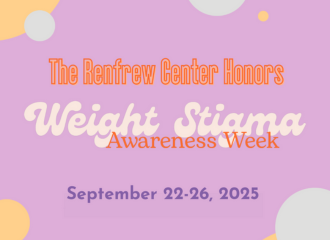Explore Categories

Weight Stigma Awareness Week: The Best Mental Health Learning Resources [Updated for 2025]
Weight Stigma Awareness Week is an annual event dedicated to raising awareness about the issue of weight-based discrimination and prejudice.

Lesser-Known Eating Disorders: A Brief Guide to ARFID, OSFED & Non-Clinical EDs
What are the lesser-known eating disorders? What symptoms do they typically present? In this post, we break down everything you need to know.

Free Virtual Support Group for College Students
This Virtual Outpatient Group is open to college students nationwide. In this group, attendees will address the many challenges college students face while trying to balance recovery with their other ongoing responsibilities.

Student Medical Leave for Eating Disorder Treatment: How to Know It’s Time [UPDATED]
Making the decision to take a medical leave from school to seek eating disorder treatment can be challenging and overwhelming, but also life-altering and life-saving.

BIPoC Mental Health Month: The Best Mental Health Learning Resources [Updated for 2025]
Looking for BIPOC-related mental health resources? Here is a curated list of BIPOC-focused communities, therapists, books, podcasts and more.

Virtual BIPOC Eating Disorder Support: What It Is & Why It Matters
Virtual BIPOC eating disorder support offers a safe space for BIPOC individuals to discuss their experiences openly and without discrimination. Here’s how it works.

Essential Pride Month Resources for Eating Disorder Recovery
We explore key resources for LGBTQIA+ members, especially those who might be dealing with or recovering from an eating disorder.

Eating Disorder Recovery at College: 10 Tips for Staying on Track [UPDATED]
Eating disorder recovery while away at college can be scary at first and difficult to balance with other priorities. Here are 10 expert tips for navigating.

Eating Disorder Recovery During Summer Break: 7 Useful Tips for College Students
Worried about disrupting your eating disorder recovery during college summer break? Here are 7 tips for avoiding the most common pitfalls.
Reach Out to Us
Talk with a Program Information Specialist at the number above to learn more about our
services and to schedule an assessment. Or, fill out the information below and we will contact you.
